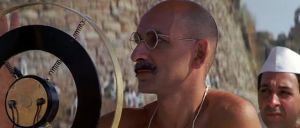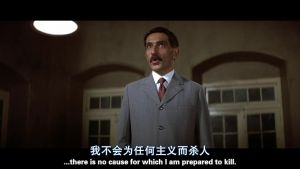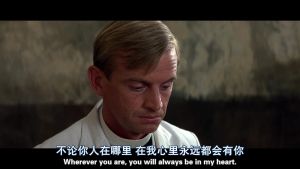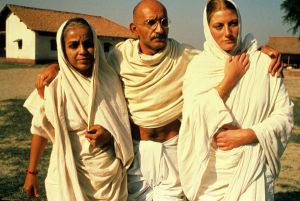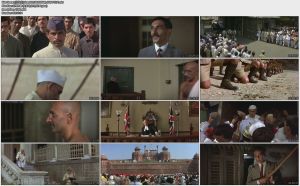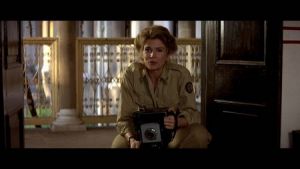Gandhi 甘地
Gandhi (甘地) is a 1982 biographical film directed by Richard Attenborough. It was Richard Attenborough's lifelong dream to bring the life story of Indian political and spiritual leader Mahatma Gandhi to the screen. When it finally reached fruition in 1982, the 188-minute, Oscar-winning Gandhi was one of the most exhaustively thorough biopics ever made. It was an international co-production between production companies in India and the UK.
Directed by: Richard Attenborough
Produced by: Richard Attenborough
Written by: John Briley, Alyque Padamsee, Candice Bergen
Music by: Ravi Shankar, George Fenton
Cinematography: Billy Williams, Ronnie Taylor
Editing by: John Bloom
Studio: Goldcrest Films
Distributed by: Columbia Pictures
Country: UK India
Language: English
Release dates:
India: 30 November 1982
United Kingdom: 3 December 1982
United States: 8 December 1982
Australia: 16 March 1983
Running time: 188 minutes
Color: Black and White
Genre: Biography Drama History
Ben Kingsley as Mohandas Karamchand Gandhi
Rohini Hattangadi as Kasturba Gandhi
Roshan Seth as Pandit Jawaharlal Nehru
Saeed Jaffrey as Sardar Vallabhbhai Patel
Candice Bergen as Margaret Bourke-White
Edward Fox as Brigadier General Reginald Dyer
John Gielgud as Baron Irwin
Trevor Howard as Judge R. S. Broomfield, the presiding judge in Gandhi's sedition trial.
John Mills as Lord Chelmsford
Martin Sheen as Vince Walker, a fictional journalist based partially on Webb Miller.
Ian Charleson as Reverend Charles Freer Andrews
Athol Fugard as General Jan Smuts
Günther Maria Halmer as Dr. Herman Kallenbach
Geraldine James as Mirabehn (Madeleine Slade)
Alyque Padamsee as Muhammad Ali Jinnah
Amrish Puri as Khan
Dilsher Singh as Khan Abdul Ghaffar Khan(Frontier Gandhi)
Ian Bannen as Senior Officer Fields
Richard Griffiths as Collins
Nigel Hawthorne as Kinnoch
Michael Hordern as Sir George Hodge
Shreeram Lagoo as Gopal Krishna Gokhale
Om Puri as Nahari
Daniel Day-Lewis as Colin, a young man who harasses Gandhi and Andrews
The film begins with Gandhi (Ben Kingsley)'s assassination on 30 January 1948, and his funeral. After an evening prayer, an elderly Gandhi is helped out for his evening walk to meet a large number of greeters and admirers. One of these visitors - Nathuram Godse - shoots him point blank in the chest. Gandhi exclaims, "Oh, God!", and then falls dead. The film then cuts to a huge procession at his funeral, which is attended by dignitaries from around the world.
The early life of Gandhi is not depicted in the film. Instead, the story flashes back 55 years to a life-changing event. In 1893, Gandhi is thrown off a South African train for being an Indian. He then decides to start a non-violent protest campaign for the rights of all Indians in South Africa. After numerous arrests and unwelcome international attention, the government finally relents by recognizing rights for Indians, though not for the native blacks of South Africa.
After this victory, Gandhi is invited back to India, where he is now considered something of a national hero. He is urged to take up the fight for India's independence from the British Empire. Gandhi agrees, and mounts a non-violent non-cooperation campaign of unprecedented scale, coordinating millions of Indians nationwide. There are some setbacks, such as violence against the protesters and Gandhi's occasional imprisonment.
Nevertheless, the campaign generates great attention, and Britain faces intense public pressure. Too weak from World War II to continue enforcing its will in India, Britain finally grants India's independence. Indians celebrate this victory, but their troubles are far from over. Religious tensions between Hindus and Muslims erupt into nation-wide violence. Gandhi declares a hunger strike, saying he will not eat until the fighting stops.
The fighting does stop eventually, but the country is divided by religion. It is decided that the northwest area of India, and eastern part of India (current day Bangladesh), both places where Muslims are in the majority, will become a new country called Pakistan (West and East Pakistan respectively). It is hoped that by encouraging the Muslims to live in a separate country, violence will abate. Gandhi is opposed to the idea, and is even willing to allow Muhammad Ali Jinnah to become the first prime minister of India, but the Partition of India is carried out nevertheless.Gandhi spends his last days trying to bring about peace between both nations. He thereby angers many dissidents on both sides, one of whom finally gets close enough to assassinate him in a scene at the end of the film that recalls the opening.
As Godse shoots Gandhi, the film fades to black and Gandhi is heard in a voiceover, saying "Oh God". The audience then sees Gandhi's cremation; the film ending with a scene of Gandhi's ashes being scattered on the holy Ganga. As this happens, we hear Gandhi in another voiceover: "When I despair, I remember that all through history the ways of truth and love have always won. There have been tyrants, and murderers, and for a time they can seem invincible, but in the end they always fall. Think of it--always."
This film had been Richard Attenborough's dream project, although two previous attempts at filming had failed. In 1952, Gabriel Pascal secured an agreement with the Prime Minister of India (Pandit Nehru) to produce a film of Gandhi's life. However, Pascal died in 1954 before preparations were completed. Later David Lean and Sam Spiegel planned to make a film about Gandhi after completing The Bridge on the River Kwai (1957), reportedly with Alec Guinness (an English actor) as Gandhi. Ultimately, the project was abandoned in favour of Lawrence of Arabia (1962).
No studio was interested in financing the film. Richard Attenborough cited that most of the financing were solicited from: Joseph E. Levine whom agreed to finance in exchange of Attenborough directing A Bridge Too Far (1977) and Magic (1978); The sale of the ownership share of "The Mousetrap"; Jake Eberts, a friend of Attenborough. The remaining of the money were solicited from major companies in England minus the BBC.
During pre-production, there was much speculation as to who would play the role of Gandhi. Both Alec Guinness and Anthony Hopkins were originally considered for the role of Gandhi. The Final choice was Ben Kingsley who is partly of Indian heritage. His father was Gujarati, the same state Mahatma Gandhi was from and his birth name is Krishna Bhanji. Ben Kingsley looked so much like Gandhi, many natives thought him to be Gandhi's ghost.
Shooting began on 26 November 1980 and ended on 10 May 1981. For the funeral scene, advertisements calling for 400,000 extras were either distributed in pamphlets and by newspapers in Delhi. Extras were not allowed to wear anything other than white and as part of security measures, turnstiles were built at selected entry points for crowd control. The crew bought any clothing that was not white.
300,000 extras appeared in the funeral sequence. About 200,000 were volunteers and 94,560 were paid a small fee under contract. The sequence was filmed on 31st Jan 1981, the 33rd anniversary of Gandhi's funeral. 11 crews shot over 20,000 feet of film, which was pared down to 125 seconds in the final release.
Nahari: I'm going to Hell! I killed a child! I smashed his head against a wall.
Gandhi: Why?
Nahari: Because they killed my son! The Muslims killed my son!
Gandhi: I know a way out of Hell. Find a child, a child whose mother and father have been killed and raise him as your own.
Gandhi: Only be sure that he is a Muslim and that you raise him as one.
Government advocate: General Dyer, is it correct that you ordered your troops to fire at the thickest part of the crowd?
Gen. Dyer: That is so.
Government advocate: One thousand five hundred and sixteen casualties with one thousand six hundred and fifty bullets.
Gen. Dyer: My intention was to inflict a lesson that would have an impact throughout all India.
Indian barrister: General, had you been able to take in the armored car, would you have opened fire with the machine gun?
Gen. Dyer: I think, probably, yes.
Lord Hunter: General, did you realize there were children, and women, in the crowd?
Gen. Dyer: I did.
Government advocate: But that was irrelevant to the point you were making?
Gen. Dyer: That is correct!
Government advocate: Could I ask you what provision you made for the wounded?
Gen. Dyer: I was ready to help any who applied.
Government advocate: General, how does a child shot with a 303 Lee-Enfield "apply" for help?
Gen. Dyer: [silence]
When Gandhi is escorted into the office of the top prison official, the pendulum on the grandfather clock in the background jumps between shots.
In the massacre scene Gen. Dyer is pacing back and forth between the two rows of firing soldiers. Right before the cut to the crowd he steps in front of a standing soldier firing.
Gandhi is a worshipful tribute to one of the 20th century's greatest leaders with Ben Kingsley giving a superb performance in the title role. Produced and directed on a grand scale by Richard Attenborough, the film sacrifices the complexities of history for an inspirational focus on its subject. Critics frequently cite the film's dismissal of supporting character development among its weaknesses, with the strongest objections reserved for Candice Bergen's miscast performance as photojournalist Margaret Bourke-White. Nonetheless, the film transcends the typical biopic with vivid recreations of important incidents from Gandhi's life.
—Richard Gilliam (a short story author and the editor of such theme anthologies)
This movie is a must see for everyone. It should be required viewing in high schools, as part of History class. The fight against prejudice will forever be relevant. It is also a beautiful work of art. Of course, it would have been hard to screw up a movie about such a great man.
Very, very few films have had the distinct ability to move and inspire me to the point where the effect is almost life-altering. "Gandhi" - the unbelievable, first-rate biopic on the historical figure - is truly one of those films, no question whatsoever. An unsurprising sweep for the 1983 Academy Awards, this is without a doubt one of the last real "epic" motion pictures ever.
Oscar (Academy Awards, USA)
Best Makeup, Tom Smith
Best Music, Original Score, Ravi Shankar, George Fenton
Best Sound, Gerry Humphreys, Robin O'Donoghue, Jonathan Bates, Simon Kaye
BAFTA Awards
Best Cinematography,Billy Williams, Ronnie Taylor
Best Costume Design, John Mollo, Bhanu Athaiya
Best Film Editing, John Bloom
Best Make Up Artist, Tom Smith
Best Production Design/Art Direction, Stuart Craig
Best Score, Ravi Shankar, George Fenton
Best Screenplay, John Briley
Best Sound, Jonathan Bates, Simon Kaye, Gerry Humphreys, Robin O'Donoghue
Best Supporting Actor, Edward Fox
Best Supporting Actor, Roshan Seth
Best Supporting Actress, Candice Bergen
Oscar (Academy Awards, USA)
Best Actor in a Leading Role, Ben Kingsley
Best Art Direction-Set Decoration, Stuart Craig, Robert W. Laing, Michael Seirton
Best Cinematography, Billy Williams, Ronnie Taylor
Best Costume Design,John Mollo, Bhanu Athaiya
Best Director, Richard Attenborough
Best Film Editing, John Bloom
Best Picture, Richard Attenborough
Best Writing, Screenplay Written Directly for the Screen, John Briley
BAFTA Awards
Best Actor,Ben Kingsley
Best Direction, Richard Attenborough
Best Film, Richard Attenborough
Best Supporting Actress, Rohini Hattangadi
Most Outstanding Newcomer to Leading Film Roles, Ben Kingsley
British Society of Cinematographers
Best Cinematography, Ronnie Taylor, Billy Williams
Golden Globes, USA
Best Actor in a Motion Picture - Drama, Ben Kingsley
Best Director - Motion Picture, Richard Attenborough
Best Foreign Film, UK.
Best Screenplay - Motion Picture, John Briley
New Star of the Year in a Motion Picture - Male, Ben Kingsley
Italian National Syndicate of Film Journalists
Silver Ribbon: Best Director - Foreign Film, Richard Attenborough
Los Angeles Film Critics Association Awards
Best Actor, Ben Kingsley
National Board of Review, USA
Best Actor, Ben Kingsley
Best Film
New York Film Critics Circle Awards
Best Actor, Ben Kingsley
Best Film
附件列表
词条内容仅供参考,如果您需要解决具体问题
(尤其在法律、医学等领域),建议您咨询相关领域专业人士。
如果您认为本词条还有待完善,请 编辑
上一篇 下一篇 The Secret 秘密

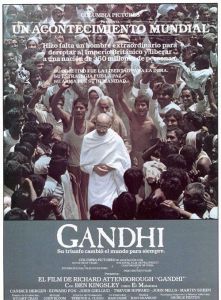
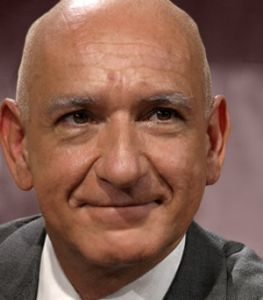
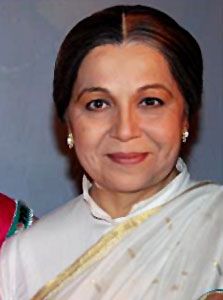
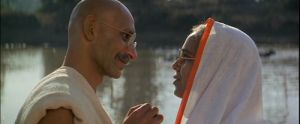
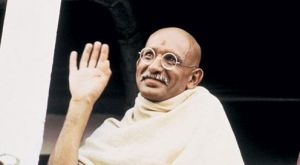
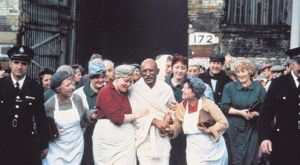
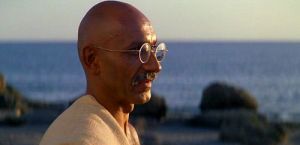
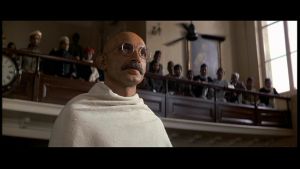
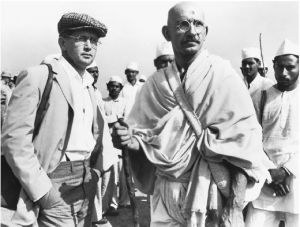
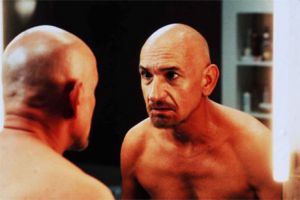
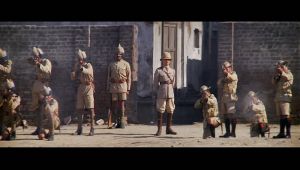
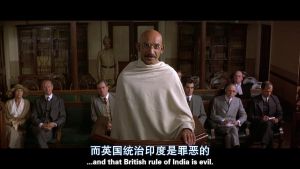
![] ]](http://www.dioenglish.com/wiki/uploads/201004/1270435751jEK1fCn9_s.jpg)
